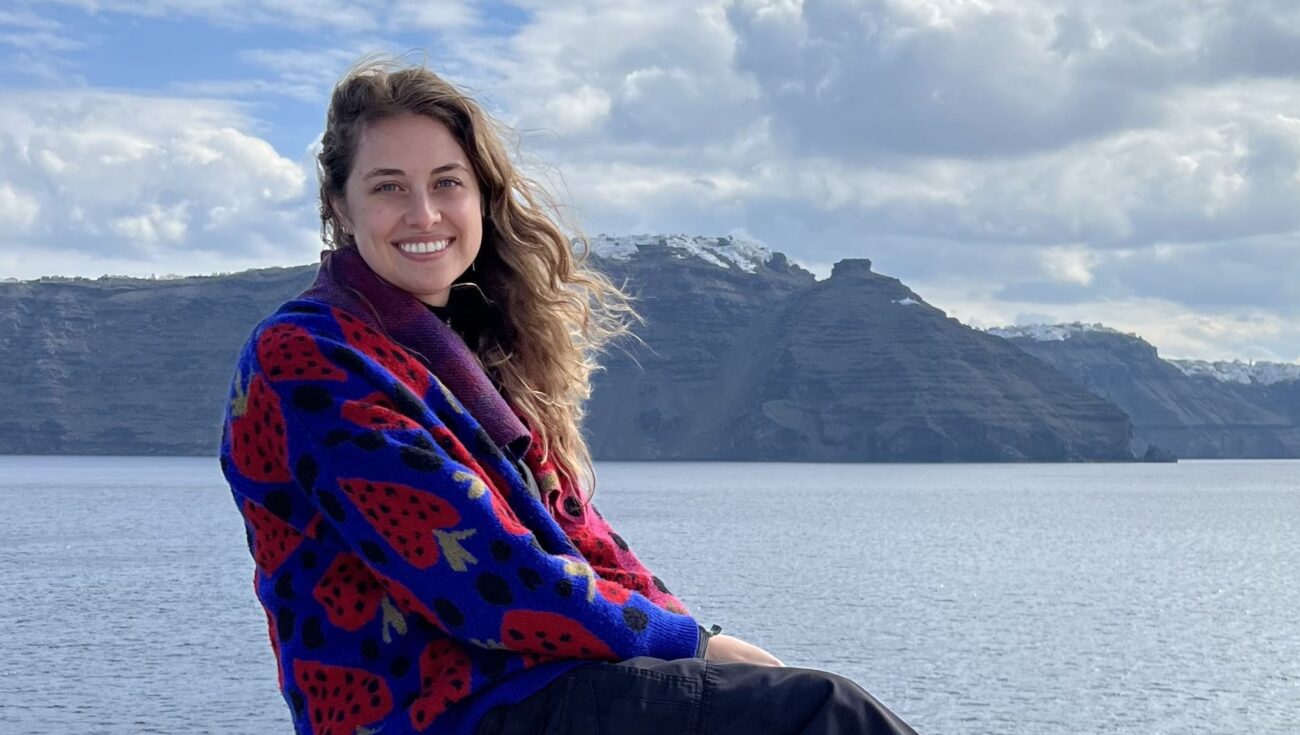Ally Peccia, a fourth year Ph.D. candidate at Columbia’s Lamont-Doherty Earth Observatory, studies the origins of volcanic gases and the interactions between volcanoes and the climate. Peccia has also worked to integrate her passions for science and art through unique initiatives, including creating a “Field Guide” with scientists at the Metropolitan Museum of Art focused on volcano-related works and helping to organize the “Research as Art” event at Lamont this past fall. In her own ceramics practice, Peccia often incorporates volcanic themes and materials.
In the Q&A below, Peccia reflects on her lifelong love of learning, the mentors who inspired her studies and the importance of fixing the “leaky pipeline” to leadership for women scientists.
How did you get into science?
I’ve always loved to learn, and using a framework to understand the world really appealed to me. Although I study volcanoes now, I’ve had all sorts of interests throughout my education. I studied amphibian breeding hotspots in Grand Teton National Park and worked in a genetics laboratory in high school. In college, I helped map lead contamination in NYC and worked in a lab where we genetically engineered bacteria to breakdown [the industrial chemical] BPA in wastewater treatment settings. For me, getting involved with science was never about committing to a single topic; it was about being involved in a process of learning and discovery.
Is there a woman in science, from Columbia or otherwise, who inspired you?
There are many women in science who have inspired me, but one stands out. I took a class called How to Build a Habitable Planet with Terry Plank in my junior year of my undergraduate studies, and was captivated not only by the subject matter, but by Plank’s enthusiastic teaching style. This happened to be the same semester that she received a major grant from the Moore Foundation to improve the monitoring of highly active volcanoes around the world (the AVERT Project). I remember being amazed that she could make a difference in the lives of students while simultaneously working on projects that have the potential to transform the way we predict and respond to disaster. I’ve been incredibly lucky to continue my graduate studies under her mentorship, and the intellectual force and passion that she carries with her is still something I’m inspired by every day.
“Getting involved with science was never about committing to a single topic; it was about being involved in a process of learning and discovery.”
How can we continue to support and mentor women scientists?
My view is that we have improved a lot at recruiting more women scientists, but don’t do a great job at retaining them in more senior positions (the so-called “leaky pipeline”). Interventions at the graduate student, postdoc and early career stages are necessary to help repair these “leaks.” To that end, voting for candidates and ballot measures that support equity initiatives in higher education is crucial to continuing to improve the landscape for women scientists.
Do you have any advice for younger women or girls who are interested in entering the field?
A few things I’ve observed so far are: (1) Your advisors/mentors are incredibly important to your success and long-term fulfillment in science. Choose them carefully, and not just for their academic accomplishments. (2) Failure is a part of the job. Try to embrace it when you can and recognize that failure is still progress. (3) The emotional connection you have to your science is important. Have fun and use your imagination! Let the excitement of discovery fuel your wonder about the world.
Source link
Olga Rukovets news.climate.columbia.edu

